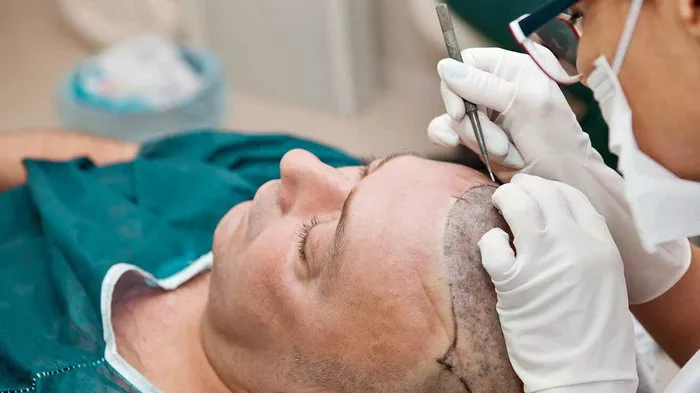A hair transplant can be a life-changing procedure, offering a permanent solution to hair loss. However, the success of this surgery heavily depends on the post-operative care and precautions taken by the patient. Knowing what not to do after a hair transplant is just as important as following the prescribed care routine. This comprehensive guide will cover the essential don’ts to ensure the best possible outcome for your hair transplant.
Avoid Touching or Scratching the Transplanted Area
One of the most critical things to avoid after a hair transplant is touching or scratching the transplanted area. The newly implanted grafts are extremely delicate and can be easily dislodged.
Why It’s Important
Graft Stability: The grafts need time to establish a blood supply in their new location. Touching or scratching can disrupt this process.
Infection Risk: Your hands can carry bacteria, and touching the scalp can introduce these bacteria to the surgical sites, leading to infection.
Tips to Avoid
Use Mild Shampoo: Wash your hair gently with a mild shampoo recommended by your surgeon.
Distract Yourself: If you feel the urge to scratch, find a distraction like reading or watching TV.
Do Not Wash Your Hair Immediately
Washing your hair too soon after a hair transplant can jeopardize the grafts and the overall success of the procedure.
Recommended Timeline
First 48 Hours: Avoid washing your hair completely.
Day 3 to Day 7: Wash your hair gently with lukewarm water and the shampoo provided by your clinic.
After 7 Days: Follow the specific instructions given by your surgeon.
Proper Washing Technique
Gentle Rinse: Use a cup to pour water over your head rather than standing directly under the shower.
Light Touch: Apply shampoo very gently without rubbing or massaging the scalp.
Avoid Physical Activity and Exercise
Engaging in physical activities or exercise too soon can increase blood pressure and swelling, which may harm the newly implanted grafts.
Initial Rest Period
First Week: Avoid all forms of exercise, including light activities like walking.
Second Week: Gradually reintroduce light exercises, but avoid strenuous activities that cause sweating.
Long-Term Considerations
Heavy Lifting: Avoid heavy lifting or any activity that causes you to strain for at least one month.
Contact Sports: Refrain from contact sports or activities where you risk hitting your head for several months.
Do Not Expose Your Scalp to Direct Sunlight
Direct sunlight can damage the sensitive scalp and affect the healing process.
Protection Measures
Hat: Wear a loose-fitting hat that does not press on the grafts.
Sunscreen: After a few weeks, you can apply sunscreen to your scalp, but only after consulting with your surgeon.
Duration of Protection
First Month: Avoid sun exposure as much as possible.
Next Few Months: Continue to protect your scalp when outdoors.
Avoid Smoking and Alcohol
Both smoking and alcohol can significantly impede the healing process and affect the final results of your hair transplant.
Impact on Healing
Smoking: Reduces blood flow to the scalp, which is crucial for graft survival and growth.
Alcohol: Can cause dehydration and increase swelling.
Recommended Abstinence
Smoking: Quit at least one week before surgery and refrain for at least two weeks post-surgery.
Alcohol: Avoid alcohol for at least a week before and after the procedure.
Refrain from Using Hair Products
Using hair products such as gels, sprays, or conditioners can irritate the scalp and affect the healing process.
Product-Free Period
First Two Weeks: Avoid all hair products.
Gradual Reintroduction: After two weeks, start with mild products and consult with your surgeon.
Alternatives
Natural Oils: If your scalp feels dry, use natural oils recommended by your surgeon.
Do Not Sleep Flat
Sleeping flat can cause swelling and pressure on the transplanted area, which can harm the grafts.
Recommended Sleeping Position
Elevated Head: Use pillows to keep your head elevated at a 45-degree angle for the first week.
Protective Measures: Sleep on your back to avoid rubbing the grafts against the pillow.
Avoid Swimming
Swimming in pools, hot tubs, or the ocean can expose your scalp to bacteria and chemicals that can interfere with healing.
Safe Timeline
First Month: Completely avoid swimming.
After a Month: Consult with your surgeon before resuming swimming activities.
See Also: How Bald is Too Bald for a Hair Transplant?
Steer Clear of Certain Medications
Some medications can interfere with the healing process and affect the success of the hair transplant.
Medications to Avoid
Blood Thinners: Can increase bleeding and swelling.
Non-Steroidal Anti-Inflammatory Drugs (NSAIDs): May affect the healing process.
Consult Your Surgeon
Prescription Review: Review all your medications with your surgeon before the procedure.
Pain Management: Use only the pain medications prescribed by your surgeon.
Do Not Ignore Follow-Up Appointments
Follow-up appointments are crucial to monitor the progress of your healing and ensure the success of your hair transplant.
Importance of Follow-Ups
Progress Monitoring: Your surgeon can assess the growth and health of the grafts.
Early Detection: Any potential issues can be identified and addressed early.
Schedule
First Week: Typically, you will have a follow-up within the first week.
Subsequent Visits: Follow the schedule recommended by your surgeon.
Conclusion
Adhering to the post-operative care instructions and understanding what not to do after a hair transplant are essential for ensuring the success of your procedure. By avoiding these common pitfalls, you can significantly increase the chances of achieving the desired results and enjoying a full head of hair. Always consult with your surgeon for personalized advice and follow their instructions meticulously to ensure a smooth and successful recovery.


